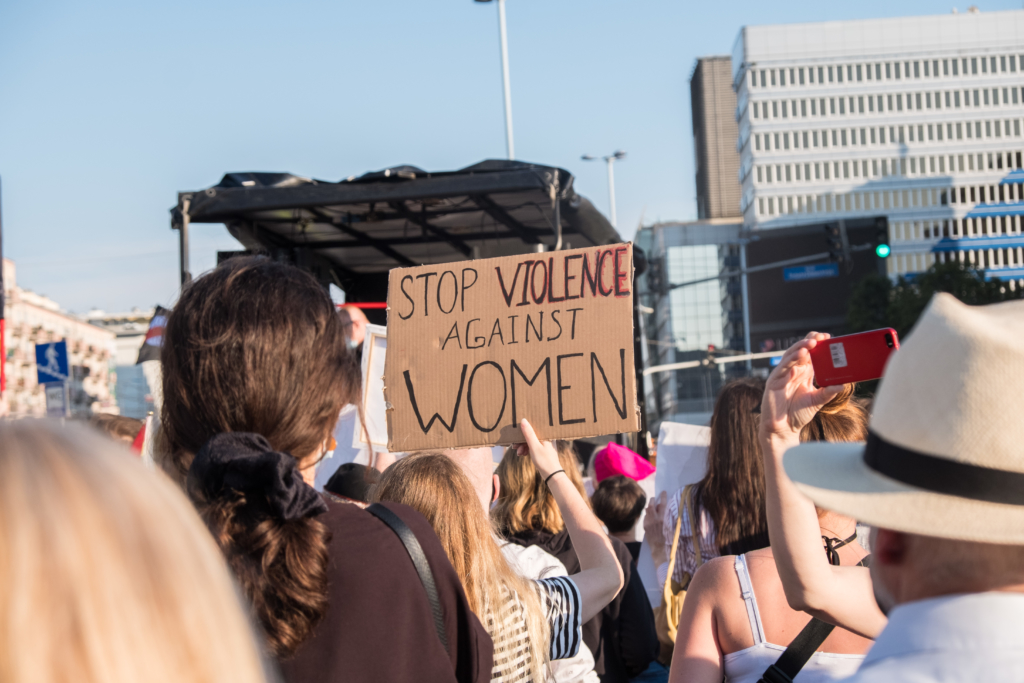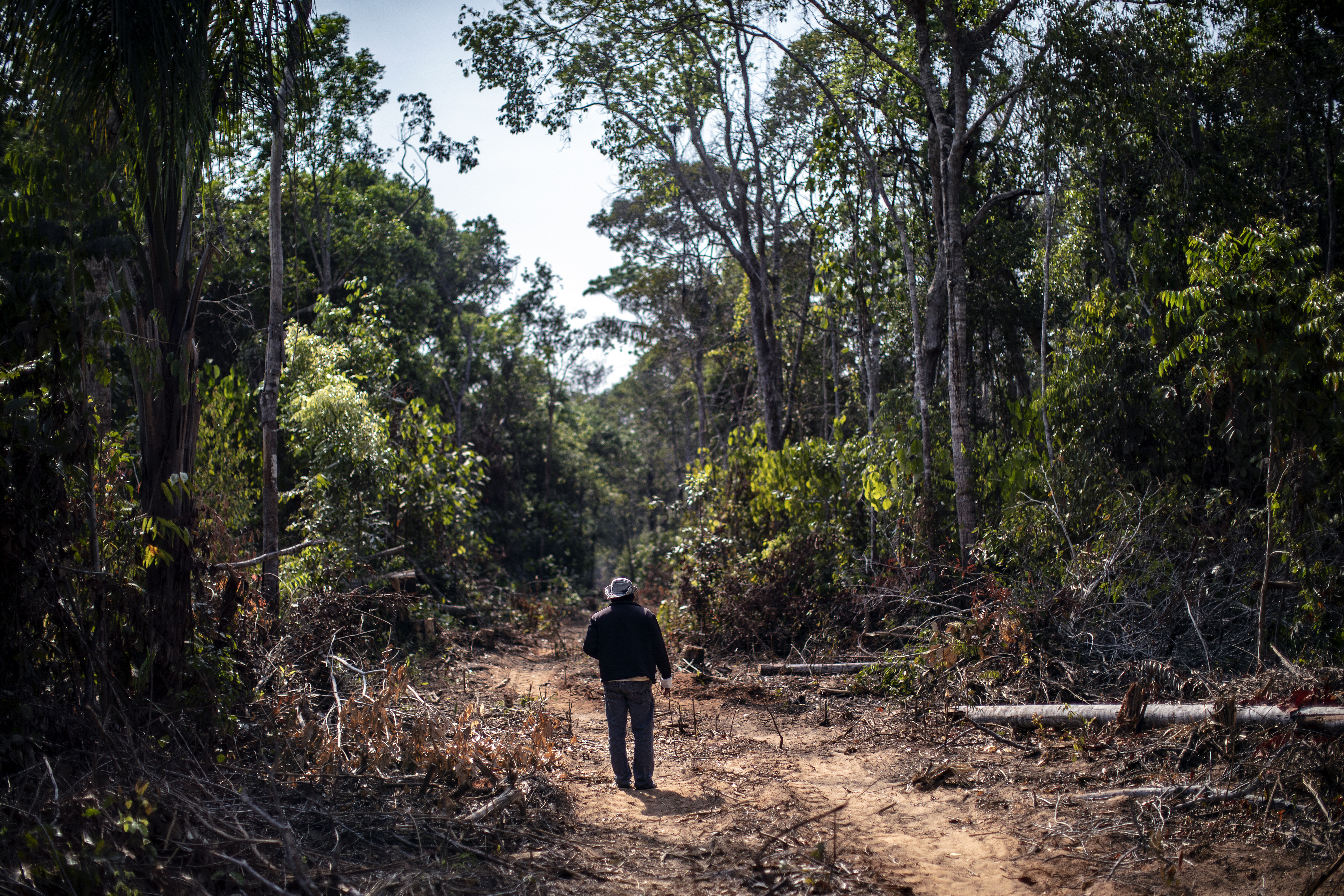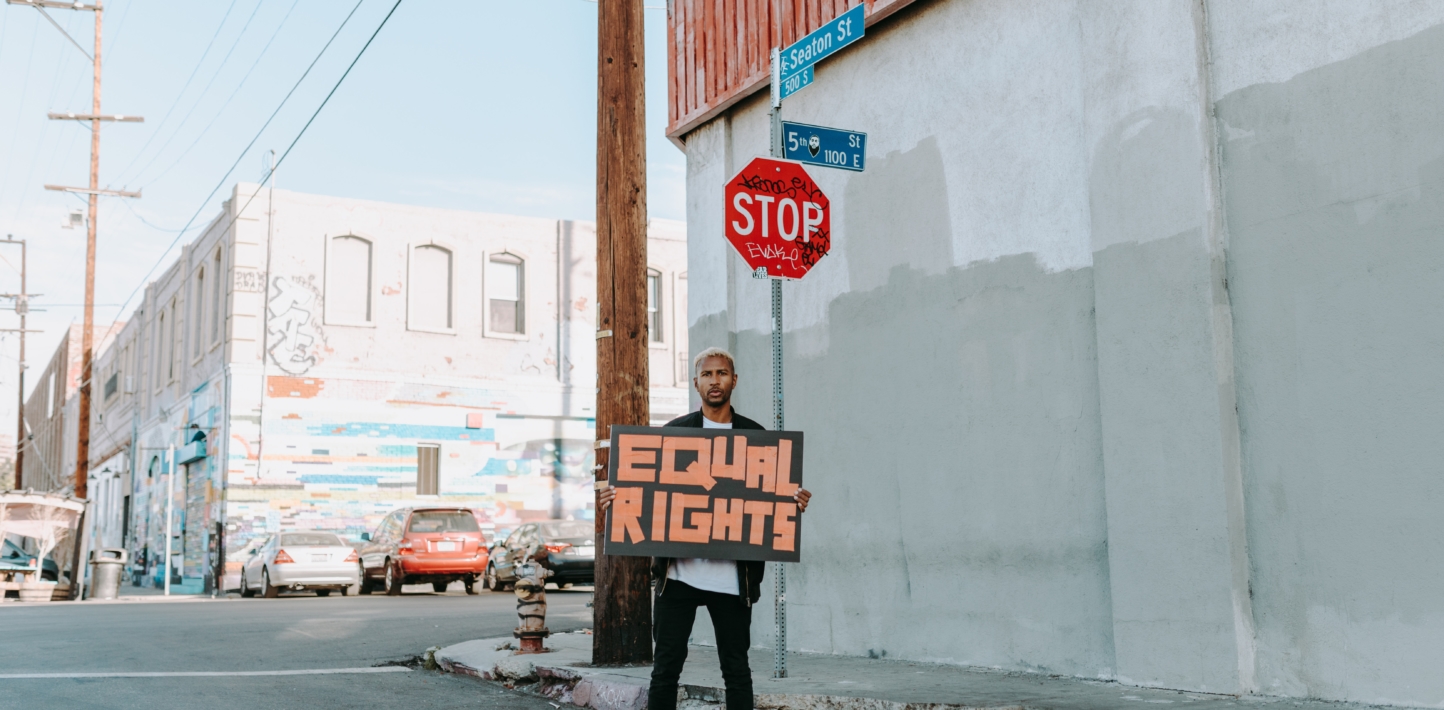Victories in our rights to health and social protection
During the pandemic, our health and social protection has been more important than ever. Despite many challenges, there were notable successes:
- Defending the rights of health workers – Amnesty’s campaigning contributed to better protections for health workers at the frontline of the pandemic. As well as highlighting the human impact of unsafe working conditions in dozens of countries, Amnesty successfully campaigned for the release of three health workers imprisoned in Egypt for criticising the government’s response to the crisis, the dropping of criminal charges against five union activists in Malaysia who were arrested for protesting about the lack of protective equipment and adequate working conditions for hospital cleaners, and the dropping of administrative charges against Dr Yulia Volkova in Russia.
- Protecting our rights to privacy – In 2020, Amnesty International’s investigation into COVID-19 contact tracing apps in Bahrain, Kuwait and Norway, found serious privacy weaknesses and tracking capabilities tantamount to mass surveillance. As a result of our research, Qatar fixed a serious security flaw that would have left the sensitive health data of millions of people exposed, within 24 hours of us notifying them, and Norway halted the use of their app hours before we were due to publish our findings.
- Supporting migrant workers – In 2020, Qatar abolished requirements for migrant workers to get permission from their employer to change jobs and announced the introduction of a new non-discriminatory minimum wage in a bid to help protect migrant workers from labour exploitation. Amnesty has been campaigning to improve migrant workers’ rights for years in Qatar, which is due to host the 2022 World Cup, and will continue to do so to ensure these reforms are retained and implemented.
- Protecting care home residents -The UK’s Care Quality Commission announced an urgent investigation into the blanket use of “Do not attempt resuscitation” orders in care homes during the COVID-19 pandemic. In October, Amnesty International had revealed that the UK government abandoned older people to die in care homes in the early stages of the pandemic.
Progress on gender-based violence and sexual and reproductive rights

Several countries took important steps to extend their protection of women’s and girl’s rights:
- Reforming rape laws – In 2020, there were hard fought victories to change the legal definition of rape in a number of countries. For example, Denmark finally recognized in law that sex without consent is rape, marking a significant victory for women’s rights in a country where rape is hugely under-reported and the chances of prosecutions or conviction very slim, even if victims do go to the police. Amnesty has been campaigning in several European countries to reform legal definitions of rape from forced-based to consent-based, including through the Let’s Talk About Yes campaign. Spain announced a bill to define rape as sex without consent, in line with international human rights standards. This followed some high-profile gang rape cases in which the justice system failed victims, including the so-called ‘La Manada’ (wolf pack) case in which a lower court found that five men were only guilty of the lesser offence of sexual abuse.
- Fighting back against gender-based violence – In 2020, a number of legal reforms saw the fight against gender-based violence head in the right direction. South Korea’s National Assembly passed laws which increased punishment for digital sex crimes, the Sudanese government introduced legislation criminalizing female genital mutilation, and Kuwait’s Parliament approved a bill criminalizing domestic violence and offering victims of domestic violence legal, medical care and rehabilitation services.
- Decriminalizing abortion – Argentina legalized abortion in December 2020 after President Alberto Fernández fulfilled his campaign promise to send a historic bill to Congress, following years of campaigning by women’s rights advocates including Amnesty International. Argentina joined other countries which took steps to liberalize access to abortion, such as Northern Ireland and South Korea.
- Protecting pregnant pupils – InSierra Leone, the government overturned a ban preventing pregnant girls from attending school and sitting exams, following five years of work by Amnesty and other partners, which included research, campaigns and successful strategic litigation at the ECOWAS Community Court of Justice.
Promising steps taken towards accountability for human rights crises
After a long struggle, progress was made towards accountability for human rights crises at an international level:
- UN fact finding – In June, the UN Human Rights Council established a fact-finding mission to investigate violations and abuses of international human rights law and violations of international humanitarian law committed by all parties to the conflict in Libya since 2016. In addition, according to the UN Fact-Finding Mission (FFM) on Venezuela, there were reasonable grounds to believe that crimes against humanity have been committed in the country since 2014 and that President Maduro and senior military and ministerial figures ordered or contributed to the crimes. In September, the Mission called for those suspected of criminal responsibility for crimes against humanity to be held accountable.
- Progress at International Criminal Court (ICC) – In March, the ICC decided to open an investigation into crimes under international law by all parties to the conflict in Afghanistan. This reversed an earlier decision not to proceed with the investigation, which Amnesty International had strongly criticized. ICC investigations into Myanmar also continued last year, and preliminary examinations were concluded on Nigeria and Ukraine, with the Prosecutor announcing her intention, in the future, to seek investigations into alleged war crimes and crimes against humanity. The Prosecutor also sought a ruling on the scope of the ICC’s territorial jurisdiction in the Occupied Palestinian Territories, with a view to opening an investigation. Ali Muhammad Ali Abd-Al-Rahman (also known as Ali Kushayb), a former Sudanese senior militia commander, surrendered to the ICC after 13 years spent evading justice for crimes against humanity and war crimes allegedly committed in Darfur.
New reporting from AFRICOM – for the first time, the US Africa Command (AFRICOM) began publishing quarterly reports addressing allegations of civilian casualties from US air strikes in Somalia, including three incidents covered in Amnesty International investigations. Following the release of the first report in April, several members of the US Congress began hearings to hold the Pentagon/AFRICOM accountable. AFRICOM has thus far admitted 13 civilian casualties in Somalia.
- Success in curbing the arms trade – the arms embargo on South Sudan was unanimously renewed by the UN Security Council in May 2020, following intense advocacy and a month-long campaign by Amnesty International. Amnesty’s exhaustive and stand-alone research on arms embargo violations was credited by Security Council delegations as decisive for the positive vote.
Unjustly detained individuals released in victory for freedom of expression
A number of unjustly detained individuals were released after sustained campaigning by Amnesty International’s supporters.
- For example, in South Sudan, activist Kanybil Noon was released after 117 days in detention without charge. In April, Chinese human rights lawyer Wang Quanzhang was reunited with his family after spending four and a half years in prison. He was targeted for his work exposing corruption and human rights violations. Amnesty had campaigned for his release since he was first detained in 2015. In Bahrain, human rights activist Nabeel Rajab was released from prison in May on a non-custodial sentence, following years of campaigning from Amnesty International and other human rights organizations.
Tackling the climate crisis

Global mobilization around the COVID-19 pandemic drew comparisons with the need for urgent action to address the climate emergency.
– Climate litigation – There was a significant increase in climate litigation targeting governments and corporations, with major new cases being filed in France, Germany, Poland, Spain and the UK, among others, as well as a case by six Portuguese children and young adults to the European Court of Human Rights targeting 33 member states. The Irish Supreme Court required the government to adopt more ambitious emissions reductions targets, whereas the Swiss Federal Court rejected a similar claim.
- Environmental awareness – Mexico became the 11th country to ratify the Escazú Agreement, an unprecedented regional treaty on access to information, public participation and justice in environmental matters and the protection of environmental defenders in Latin America and the Caribbean, meaning it will finally come into effect on 22 April 2021.
People power
- Human rights activists joined forces to support many movements around the world in 2020, including the Black Lives Matter protests in the United States and the #EndSars protests in Nigeria, among many others. The pandemic also gave rise to new and creative forms of protest such as virtual climate strikes.


